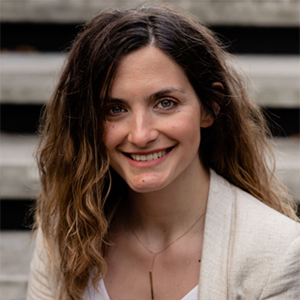
Duygu Yakin
Duygu Yakın works as an assistant professor at the University of Amsterdam. She completed her training as a clinical psychologist in Türkiye, and she also works as a schema therapist at Academic Center for Trauma and Personality in Amsterdam. Her clinical work mostly focuses on treating personality disorders and early childhood trauma in culturally diverse populations. She provides schema therapy in individual and group formats. Her research focuses on the schema modes, mechanisms of change in therapy, and personality disorders.
How does culture shape the way we define what is healthy in schema therapy?
Co-presented with Michelle Neo, Edward Chan John Louis, Beatrice Ng-Kessler, Chaiyun Sakulsriprasert,
The majority of schema therapy research is rooted in Western contexts, resulting in clinical samples that are largely representative of Western populations. In the Delphi consensus study, Pilkington and colleagues (2022) identified the important gaps in research on the schema therapy model with two areas of concern relating to the need to expand research to “people who are from racial and ethnic minorities” and “adapting schema therapy to different cultures.” Currently, there are few papers that have examined schema therapy within Asian populations, however, the existing findings do reflect the universality of both positive and negative schemas when compared across different cultures (Louis et al., 2018) and that with cultural modifications (whilst preserving the integrity of the schema model) it is an appropriate therapy for Asian clients (Mao et al., 2022). Unfortunately, the investigation of schema therapy across Asian demographics remains limited due to challenges such as difficulty in participant recruitment, resource constraints, complexities in the translation of schema terminology, and a shortage of trained schema therapists in the Asian region. This Round Table will tie into the conference theme “How Schema Therapy Empowers Healthy Modes” by exploring the question “How does culture shape the way we define what is healthy in schema therapy?” with an emphasis on the exploration of what healthy schemas and modes can look like in Asian populations (versus non-Asian/Western populations). Our discussion will explore the intersection of schema therapy principles and Asian cultural values including how the definition of “healthy” may present differently in a Western vs. Eastern context, how schemas and modes may present differently across cultures, the potential issues that may arise when culture is not factored in schema formulation and how certain cultural concepts (e.g. filial piety) may pose challenges for shifting coping modes (e.g. compliant surrenderer). Each of our panellists will share their unique thoughts and experiences in their application of schema therapy within Asian populations across both research and clinical settings. References Louis, J. P., Wood, A. M., Lockwood, G., Ho, M. H. R., & Ferguson, E. (2018). Positive clinical psychology and Schema Therapy (ST): The development of the Young Positive Schema Questionnaire (YPSQ) to complement the Young Schema Questionnaire 3 Short Form (YSQ-S3). Psychological Assessment, 30(9), 1199-1213. Mao, A., Brockman, R., Neo, H. L. M., Siu, S. H. C., Liu, X., & Rhodes, P. (2022). A qualitative inquiry into the acceptability of schema therapy in Hong Kong and Singapore: implications for cultural responsiveness in the practice of schema therapy. Clinical Psychologist, 26(3), 341-350. Pilkington, P. D., Younan, R., & Karantzas, G. C. (2023). Identifying the research priorities for schema therapy: A Delphi consensus study. Clinical Psychology & Psychotherapy, 30(2), 344–356.
The Healthy Adult Mode; Key Similarities and Differences Between four empirical based models and their Clinical Implications
Co-Presented with George Lockwood, David Bernstein & John Louis
Four major research based approaches to the development of our understanding of the Healthy Adult Mode will be discussed with a focus on the key areas of overlap, differences, possibilities for integration, clinical implications and suggestions for further development. Each had distinctly different starting points. Yakin and Arntz have been exploring the interactions between healthy adults and child modes. Bernstein cast a broad to develop a model drawing on the work of Seligman, Bowlbly, Frankle, Ryan & Deci and the DSM-5 model of healthy functioning, among others. Louis and Lockwood started with 18 positive schemas hypothesized by Lockwood, Perris and Young as the adaptive counterpoints to the 18 early maladaptive schemas. Louis and Lockwood also developed a second model of the healthy adult mode in a nurturing context with their starting point being hypothesized counterpoints to the maladaptive parenting interactions operationalized in the Young Parenting Inventory. Tilling the soil of healthy adult functioning from such distinct yet compelling directions offers the promise of significantly advancing our understanding of this important and complex construct.
Yakin and Arntz’s work involved in-depth qualitative analysis of the interactions between child modes and healthy adults by conducting 45 to 60 minute semi-structured interviews. Three broad themes and 10 subthemes emerged. Bernstien’s personal strengths model consists of four domains and 16 primary factors and has an accompanying scale for clinical use. Louis and Lockwood’s model of healthy adult functioning consists of 14 positive schemas organized into 4 domains and Louis and Lockwood’s model of the healthy adult parent consists of 7 parenting schemas. Each of these two models have an accompanying scale for clinical use. All four of these models are in the midst of ongoing research and updates on recent findings will be provided.

